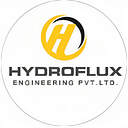Comprehensive Guide to Sewage Treatment Plants (STP) and Effluent Treatment Plants (ETP)
Introduction
Sewage Treatment Plants (STPs) play a pivotal role in managing and disposing of sewage in urban areas. Typically installed in multi-story apartment complexes, these plants are crucial for maintaining a healthy living environment. However, the challenges of maintaining underground STPs have led to the exploration of innovative solutions for efficient sewage treatment.
Challenges in STP Maintenance
Maintaining underground STPs poses unique challenges. Residents must navigate the cumbersome process of emptying collected sewage for repairs, especially concerning sludge disposal in basements. This difficulty in maintenance underscores the need for more accessible and efficient sewage treatment solutions.
Wastewater Treatment Processes
1. Primary Treatment
STPs process wastewater to a specified standard. The initial stage removes large solids, while the second, known as aerobic treatment, targets Biochemical Oxygen Demand (BOD) and Chemical Oxygen Demand (COD). Finally, a tertiary treatment step polishes the water before releasing it into the environment.
2. Common Problems in STPs
An informal survey highlighted prevalent issues in STPs. Awareness of these challenges is essential for effective maintenance. Some issues include accessibility problems due to underground locations, making expert consultation crucial for inspections.
Residential STPs: An Overview
Residential buildings often require at least one STP for sewage treatment. Unfortunately, the underground placement of many STPs makes them challenging to inspect without professional help. Consulting experts becomes imperative to ensure the effective functioning of these crucial systems.
Effluent Treatment Plants (ETP) and Biofilm Removal
Effluent Treatment Plants focus on improving wastewater quality by removing pollutants. Biofilm removal, a key component, employs chemicals and enzymes to eliminate microbial pathogens. This process is vital for maintaining environmental safety during sewage treatment.
Anaerobic vs. Aerobic Treatment
STPs can utilize either anaerobic or aerobic bacteria for sewage treatment. While anaerobic bacteria can degrade sludge, it produces toxic gases harmful to aquatic life. Aerobic treatment is environmentally friendly, but both options come with unique considerations. A survey of STPs sheds light on the most common problems and their solutions.
Benefits of STPs for Communities
STPs offer numerous benefits, including lower costs and improved air quality. They contribute to environmental sustainability by producing clean sewage water and beneficial biosolids. Despite the rare noise issues associated with anaerobic wastewater plants, the overall advantages make STPs a vital investment for urban areas.
Types of STP Plants
There are three main types of STP plants: anaerobic, aerobic, and a combination of both. Anaerobic plants, though more common, raise environmental concerns. Choosing the right type depends on factors such as environmental impact and sewage composition.
Installation and Infrastructure
STP installation is a crucial part of a town’s infrastructure, contributing to its overall development. The rotary-motor-driven system used in the process ensures efficient treatment. Anaerobic sludge, a byproduct of the treatment process, must be appropriately managed to minimize environmental impact.
Conclusion
In conclusion, understanding the intricacies of STPs and ETPs is vital for effective sewage management. This comprehensive guide provides insights into the challenges, processes, and benefits associated with sewage treatment plants, empowering communities to make informed decisions for a sustainable and healthy living environment.
